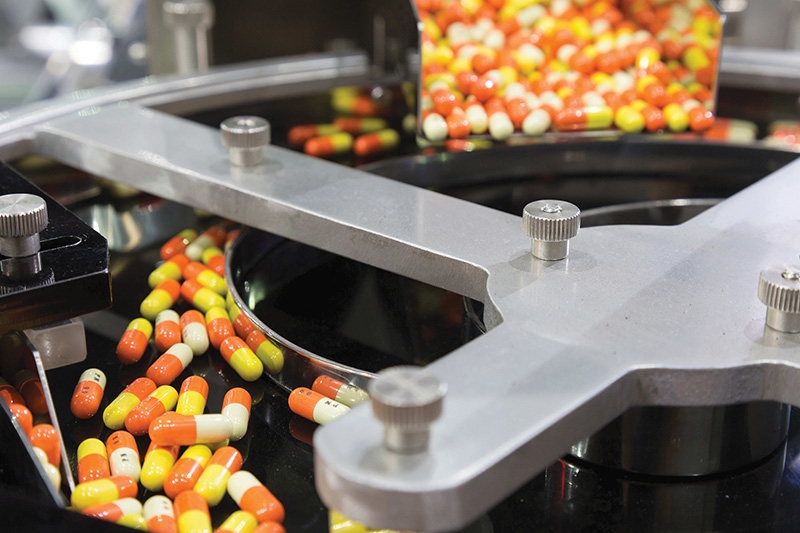EVFTA effect yet to blossom in pharma
 |
| Drug companies have been changing their structures in order to adapt to changing regulations. Photo: Shutterstock |
In early August the Ministry of Health’s Drug Administration of Vietnam (DAV) announced results of the evaluation of multinational corporations attempting to meet GMP-EU standards, with GlaxoSmithKline Biologicals SA, B. Braun Melsungen AG, and MSD International GmbH T/A MSD Ireland being among the names included.
Seeking such recognition has become crucial for these groups since the EU-Vietnam Free Trade Agreement (EVFTA) came into force a year ago. Under the landmark agreement, EU-GMP is selected as one of the evaluation criteria in the bidding tender packages for hospitals. This has lengthened the list of European pharmaceutical producers seeking the certificate to venture further into the profitable hospital channel.
Beyond EU-GMP recognition, for the first time, foreign-invested enterprises’ (FIEs) rights to import and export drugs are recognised under the Law on Pharmacy and Decree No.54/2017/ND-CP, which guides this law and was announced in 2017 as part of preparations for the enforcement of the EVFTA.
The EVFTA allows FIEs to import drugs by converting their operating model from a representative office to a pharmaceutical limited company, thus enabling EU pharmaceutical enterprises to join more deeply in the supply chain in the local market.
To adapt, AstraZeneca approached a new strategy by transforming its Vietnamese arm into an FIE by launching AstraZeneca Vietnam last year. It also announced three new partnerships: a pharmaceutical distribution deal with National Phytopharma JSC; an MoU with the University of Medicine and Pharmacy in Ho Chi Minh City to enhance knowledge and clinical trial capabilities; and a sustainability partnership with the UK government to promote green energy by donating solar power systems to local health facilities.
Similarly, other multinationals changed their business strategies towards becoming a pharmaceutical limited company. In particular, France’s Sanofi-Aventis Vietnam became the first lawful multinational importer in drug production in the country in 2019.
More encouragingly, local rules provide the legal framework for FIEs to import vaccines into the country, making it instrumental to import COVID-19 vaccines into Vietnam. In late February, the country received the first batch of vaccines produced by British-Swedish pharma and biotech giant AstraZeneca.
Ngo Thanh Hai, a senior associate at LNT & Partners said, “With these changes, we have advised AstraZeneca Vietnam in obtaining the certificate of satisfaction of conditions for drug-importing business to import the AstraZeneca COVID-19 vaccine into Vietnam, and Moderna on its vaccine shipment which will be imported and supplied to the government by Zuellig Pharma.”
Together with AstraZeneca and Moderna, the changes also benefit other COVID-19 vaccine producers, with Johnson & Johnson’s COVID-19 vaccine also set to arrive in Vietnam in the near future.
Industry insiders, however, said that the improvements have not made much impact on the local pharmaceutical market over the past year, with many barriers in Decree 54 remaining. Pharmaceutical analyst Nguyen Vu Cuong told VIR, “The EVFTA needs more time to settle in.”
One of the major challenges concerns new registration, re-registration, and licence renewal certificates for drugs. Decree 54 introduces limits including the concept of drug distribution, warehousing, and transportation services which have prevented European businesses from implementing plans and giving drugs directly to hospitals for patients.
Meanwhile, market authorisation (MA) registration is deemed too time-consuming. A representative of Adamed Pharma explained that, for medicines having obtained MA in Vietnam, such authorisation would need to be renewed every five years and the quality, safety, and efficacy of such medicines remain unchanged.
For medicines that are registered for the first time, they need to be registered for MA in Vietnam by submitting administrative dossiers and dossiers relating to the drug quality, safety, and efficacy. The DAV has the obligation to review and issue MA or provide an explanation for rejected applications within 12 months.
“However, those timelines are not being met and the actual timelines of the DAV are far beyond those stipulated,” the Adamed representative noted.
What the stars mean:
★ Poor ★ ★ Promising ★★★ Good ★★★★ Very good ★★★★★ Exceptional
Themes: EVFTA & EVIPA
Related Contents
Latest News
More News
- VNPAY and NAPAS deepen cooperation on digital payments (February 11, 2026 | 18:21)
- Vietnam financial markets on the rise amid tailwinds (February 11, 2026 | 11:41)
- New tax incentives to benefit startups and SMEs (February 09, 2026 | 17:27)
- VIFC launches aviation finance hub to tap regional market growth (February 06, 2026 | 13:27)
- Vietnam records solid FDI performance in January (February 05, 2026 | 17:11)
- Manufacturing growth remains solid in early 2026 (February 02, 2026 | 15:28)
- EU and Vietnam elevate relations to a comprehensive strategic partnership (January 29, 2026 | 15:22)
- Vietnam to lead trade growth in ASEAN (January 29, 2026 | 15:08)
- Japanese business outlook in Vietnam turns more optimistic (January 28, 2026 | 09:54)
- Foreign leaders extend congratulations to Party General Secretary To Lam (January 25, 2026 | 10:01)

 Tag:
Tag:




















 Mobile Version
Mobile Version